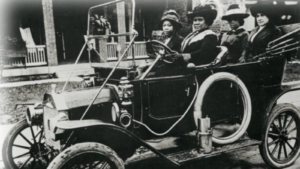The internet has become an important tool for social and political activism, with social media platforms like Twitter, Facebook, Instagram, and YouTube providing a way for people to express their opinions and connect with others. However, the online world is not free from discrimination, and black people have been disproportionately affected by shadow banning on these platforms.
What is Shadow-banning?
Shadowbanning refers to the practice of blocking or limiting the reach of a user’s content without their knowledge, effectively silencing their voice. This is done by the platforms’ algorithms, which can identify and flag content as inappropriate, spammy, or violating community guidelines. However, the algorithms are not perfect, and can also be biased against certain groups, including black people.
The problem of shadow-banning on social media platforms has been acknowledged by many black activists and influencers, who have reported experiencing a decrease in engagement and reach, and even having their accounts temporarily or permanently suspended for no apparent reason. This has not only affected their ability to express themselves but also their income, as many black creators rely on social media platforms for their livelihoods.
YouTube, in particular, has been criticized for its inconsistent and biased enforcement of its community guidelines, which has resulted in the demonetization and removal of many black creators’ videos. The company has been accused of ignoring or downplaying the concerns of black creators, who have had to resort to alternative platforms or crowdfunding to support their work.
The issue of shadow-banning black people on social media platforms and YouTube is not new, and many organizations and individuals have been working to address it. In 2018, the NAACP launched a social media campaign called #LogOutFacebook to protest the platform’s handling of hate speech and discriminatory content. More recently, a coalition of civil rights groups sent a letter to Facebook, demanding that the company address the problem of hate speech and misinformation on its platform.
While these efforts are important, more needs to be done to address the systemic issue of bias in the algorithms used by social media platforms. This includes hiring more diverse teams and conducting regular audits of the algorithms to ensure that they are not disproportionately affecting any particular group. Additionally, social media platforms need to be more transparent about their moderation practices and provide a clear and accessible process for users to appeal content takedowns and suspensions.
In conclusion, the ongoing issue of shadowbanning black people on social media platforms and YouTube is a serious problem that needs to be addressed. It is not only a matter of free speech but also of racial equity and justice. The internet has the potential to be a powerful tool for social change, but it can only do so if it is accessible to all and free from discrimination.




Responses